Text
Understanding Carcinogenicity Studies: Importance and Process
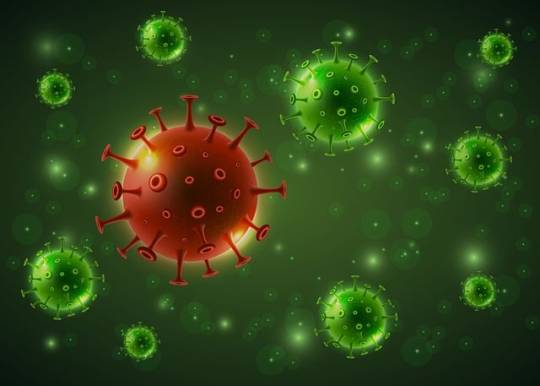
Carcinogenicity studies play a pivotal role in drug development, ensuring safety before human trials. In India, Preclinical Contract Research Organizations (CROs) handle these studies. Here's an overview:
1. Significance of Carcinogenicity Studies:
Carcinogenicity studies evaluate the potential of a drug to cause cancer. They are crucial for regulatory approval and safeguarding public health.
2. Process of Carcinogenicity Studies:
These studies involve administering the test compound to animals for a prolonged period, observing for tumor formation. Both sexes and multiple species are often used to assess the risk comprehensively.
3. Role of Preclinical CROs in India:
Preclinical CROs in India conduct these studies adhering to international guidelines like ICH S1B. They offer expertise in study design, execution, and regulatory compliance.
4. Quality Assurance and Compliance:
Stringent quality control measures ensure reliable results. CROs follow GLP (Good Laboratory Practices) to maintain data integrity and meet regulatory standards.
5. Contribution to Drug Development:
Carcinogenicity studies provide critical data for regulatory submissions. Early detection of carcinogenic potential helps pharmaceutical companies make informed decisions regarding drug development.
6. Future Perspectives:
With advancements in technology and regulatory requirements, the role of CROs in conducting carcinogenicity studies will continue to evolve. Collaboration between CROs, pharmaceutical companies, and regulatory agencies is key for ensuring drug safety and efficacy.
In conclusion, carcinogenicity studies conducted by preclinical CROs in India are integral to the drug development process. These studies uphold safety standards, facilitate regulatory approvals, and ultimately contribute to improving public health.
0 notes
Text
Navigating Surface Water Assessment: Understanding Its Importance in Environmental Conservation
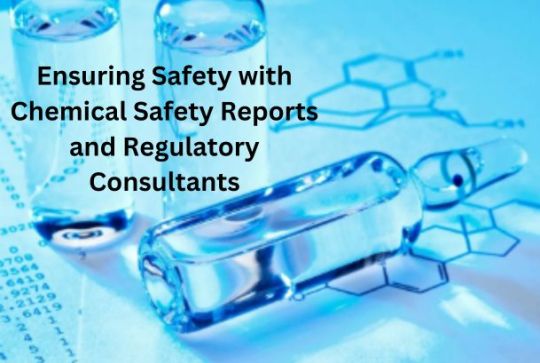
Surface water assessment plays a pivotal role in safeguarding our environment and ensuring the sustainability of water resources. As we delve into the complexities of environmental conservation, it's crucial to explore the significance of monitoring and evaluating surface water quality. In this blog, we will delve into the essence of surface water assessment, its methodologies, and its relevance in contemporary environmental practices. Additionally, we'll explore how preclinical contract research organizations contribute to this field.
Understanding Surface Water Assessment:
Surface water assessment involves the systematic examination of water bodies such as rivers, lakes, and streams to evaluate their quality, health, and ecological integrity. This process encompasses various parameters, including physical, chemical, and biological characteristics, to ascertain the overall health of aquatic ecosystems.
Importance of Surface Water Assessment:
1. Environmental Health:
Surface water assessment serves as an essential tool for monitoring pollution levels and identifying potential threats to aquatic life and human health. By analyzing parameters such as pH levels, dissolved oxygen, and pollutant concentrations, scientists can assess the impact of human activities on water quality.
2. Ecological Balance:
Healthy surface water ecosystems are vital for supporting diverse flora and fauna. Assessing water quality helps in understanding the ecological dynamics of aquatic habitats, including the effects of habitat degradation, invasive species, and climate change.
3. Human Well-being:
Surface water is a primary source of drinking water for communities worldwide. Regular assessment ensures that water treatment facilities can effectively remove contaminants, safeguarding public health from waterborne diseases and toxins.
Methods of Surface Water Assessment:
1. Water Sampling:
Collection of water samples from various points within a water body is essential for analyzing physical and chemical parameters such as temperature, turbidity, nutrient levels, and pollutant concentrations.
2. Laboratory Analysis:
Advanced analytical techniques are employed in laboratories to quantify pollutants, microbial contaminants, heavy metals, and other substances present in water samples. These analyses provide insights into the quality and safety of surface water.
3. Biological Monitoring:
Assessing the health of aquatic organisms, including fish, macroinvertebrates, and algae, offers valuable indicators of water quality and ecosystem integrity. Biological metrics such as species diversity and abundance reflect the overall ecological health of water bodies.
Preclinical Contract Research Organizations (CROs) in Surface Water Assessment:
Preclinical CROs play a significant role in environmental research and testing, including surface water assessment. These specialized organizations offer expertise in conducting toxicity studies, environmental risk assessments, and regulatory compliance evaluations for industries ranging from pharmaceuticals to agrochemicals.
In the context of surface water assessment, preclinical CROs contribute through:
1. Toxicity Testing:
Evaluating the impact of chemical pollutants on aquatic organisms through acute and chronic toxicity studies provides valuable data for assessing water quality and guiding environmental management decisions.
2. Environmental Risk Assessment:
Preclinical CROs conduct comprehensive risk assessments to identify potential hazards associated with industrial activities, agricultural practices, and wastewater discharges, helping stakeholders mitigate environmental risks and comply with regulatory standards.
3. Regulatory Support:
By staying abreast of evolving environmental regulations and guidelines, preclinical CROs assist clients in navigating complex compliance requirements and ensuring responsible stewardship of surface water resources.
Conclusion:
Surface water assessment is indispensable for preserving the health and integrity of aquatic ecosystems and ensuring access to safe drinking water for present and future generations. By employing rigorous methodologies and leveraging the expertise of preclinical contract research organizations, we can advance our understanding of water quality dynamics and implement effective strategies for environmental conservation. Together, we can work towards a sustainable future where surface water resources thrive, supporting both biodiversity and human well-being.
0 notes
Text
Exploring Genetic In-Vitro Toxicology Studies with Essem Compliance
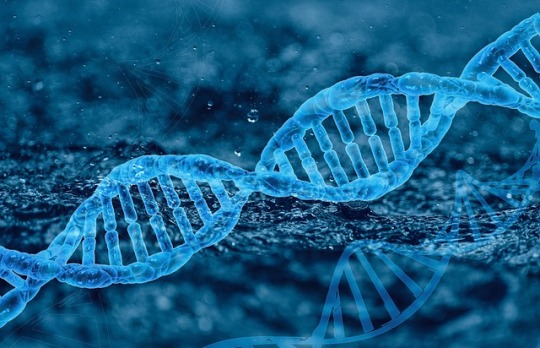
In the dynamic landscape of safety assessment, Contract Research Organizations (CROs) play a pivotal role in providing specialized services tailored to the needs of industries ranging from pharmaceuticals to cosmetics. One such pioneering CRO, Essem Compliance, stands out for its expertise in genetic in-vitro toxicology studies, offering innovative solutions that redefine safety evaluation paradigms.
Essem Compliance: Leading the Way in Genetic In-Vitro Toxicology
Essem Compliance is at the forefront of genetic in-vitro toxicology, offering comprehensive services aimed at assessing the genotoxic potential of chemicals and pharmaceuticals. Leveraging cutting-edge technologies and a multidisciplinary team of experts, Essem Compliance delivers tailored solutions to clients seeking reliable and ethical safety assessment strategies.
Services Offered by Essem Compliance
In-Vitro Assays: Essem Compliance offers a suite of in-vitro assays, including the Ames test, micronucleus assay, comet assay, and fluorescent reporter gene assays. These assays provide valuable insights into the genotoxicity of test substances, aiding in the identification of potential risks to human health.
High Throughput Screening: Essem Compliance utilizes high-throughput screening platforms to expedite the evaluation of numerous compounds simultaneously. This approach enhances efficiency and enables rapid decision-making in safety assessment processes.
Customized Solutions: Recognizing that each client's needs are unique, Essem Compliance provides customized solutions tailored to specific industry requirements and regulatory standards. Whether it's pharmaceuticals, chemicals, or cosmetics, Essem Compliance delivers personalized services to address diverse safety assessment challenges.
Collaboration and Compliance
Essem Compliance emphasizes collaboration and transparency throughout the project lifecycle, fostering partnerships built on trust and integrity. By maintaining compliance with regulatory guidelines and industry best practices, Essem Compliance ensures the reliability and regulatory acceptance of its data, facilitating seamless integration into clients' product development pipelines.
Advantages of Partnering with Essem Compliance
Expertise and Experience: Essem Compliance boasts a team of seasoned professionals with extensive experience in genetic in-vitro toxicology. Clients benefit from the collective knowledge and expertise of Essem Compliance's scientists, ensuring the highest quality of service delivery.
State-of-the-Art Facilities: Equipped with state-of-the-art facilities and instrumentation, Essem Compliance maintains the highest standards of quality and precision in its operations. From cell culture laboratories to advanced imaging systems, Essem Compliance's infrastructure supports the execution of complex in-vitro assays with utmost accuracy and efficiency.
Regulatory Support: Essem Compliance provides comprehensive regulatory support, guiding clients through the intricacies of safety assessment requirements and facilitating regulatory submissions. By staying abreast of evolving regulations and guidelines, Essem Compliance helps clients navigate the regulatory landscape with confidence and compliance.
Future Directions and Collaborative Opportunities
As genetic in-vitro toxicology continues to evolve, Essem Compliance remains committed to innovation and excellence in safety assessment. By fostering collaborative partnerships and embracing emerging technologies, Essem Compliance aims to shape the future of safety evaluation, advancing human health and environmental protection.
In conclusion, Essem Compliance stands as a beacon of excellence in genetic in-vitro toxicology, offering unparalleled expertise, customized solutions, and regulatory compliance. Through its steadfast commitment to quality, integrity, and innovation, Essem Compliance continues to drive advancements in safety assessment, empowering clients to navigate the complexities of product development with confidence and compliance.
0 notes
Text
Unveiling the World of Environmental Fate Studies

Environmental Fate Studies play a pivotal role in understanding the impact of various substances on our environment. In this exploration, we delve into the significance of Environmental Fate Studies and their connection to clinical research organizations in India. As we navigate through the intricacies of these studies, we gain insights into the processes that shape our environment and contribute to the sustainable development of industries.
Understanding Environmental Fate Studies:
Environmental Fate Studies are conducted to assess how substances, whether natural or synthetic, behave in the environment. These studies aim to track the journey of a substance from its introduction into the environment to its eventual breakdown or transformation. By evaluating factors such as degradation, transport, and accumulation, scientists can predict the potential risks and impacts on ecosystems, wildlife, and human health.
Key Components of Environmental Fate Studies:
Degradation Processes:
Environmental Fate Studies investigate how substances break down over time. This includes processes like photodegradation, where exposure to sunlight initiates breakdown, and microbial degradation, where microorganisms play a role in decomposition.
Transport and Distribution:
Understanding how substances move within the environment is crucial. Studies assess factors like mobility in soil, transport through air and water, and accumulation in specific ecological compartments.
Bioaccumulation:
This aspect focuses on the accumulation of substances in living organisms. By studying bioaccumulation, scientists can identify potential risks to the health of organisms and ecosystems.
Exposure Assessment:
Environmental Fate Studies involve evaluating the level and duration of exposure to a substance. This assessment helps in determining potential risks to human health and the environment.
Linking Environmental Fate Studies to Clinical Research Organizations in India:
Clinical research organizations in India play a vital role in the broader spectrum of environmental studies. As industries strive to meet regulatory requirements and adopt sustainable practices, these organizations contribute their expertise to ensure that substances introduced into the environment are thoroughly evaluated.
Expertise in Research Methodologies:
Clinical research organizations in India often possess extensive experience in designing and conducting studies. This expertise extends seamlessly to the realm of Environmental Fate Studies, ensuring robust methodologies and accurate data interpretation.
Regulatory Compliance:
Adherence to regulatory guidelines is paramount in both clinical research and environmental studies. Organizations in India well-versed in clinical research are equipped to navigate complex regulatory frameworks, ensuring that Environmental Fate Studies meet all compliance requirements.
Interdisciplinary Approach:
Environmental Fate Studies demand an interdisciplinary approach, combining expertise in chemistry, biology, and data analysis. Clinical research organizations, accustomed to collaborative efforts, bring together professionals from various fields to ensure a holistic assessment of environmental impacts.
0 notes
Text
Unraveling the Complexities of Animal Toxicity Studies
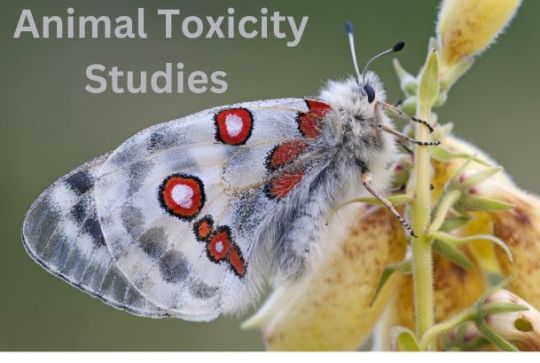
Animal toxicity studies play a pivotal role in ensuring the safety of pharmaceuticals, chemicals, and various consumer products before they reach human and environmental ecosystems. These studies, conducted on a range of species from rodents to non-human primates, aim to assess the potential adverse effects and determine safe exposure levels. While controversial due to ethical concerns, these studies remain an integral part of regulatory frameworks worldwide.
The Purpose:
The primary objective of animal toxicity studies is to identify any harmful effects a substance may have on living organisms, including humans. These studies evaluate a substance's toxicity by examining its impact on organs, tissues, and physiological processes. Researchers carefully analyze factors such as dosage, duration of exposure, and potential cumulative effects to provide comprehensive safety assessments.
Ethical Considerations:
Despite their importance, ethical concerns surrounding animal testing have prompted ongoing efforts to develop alternative methods. Scientists are actively exploring in vitro models, computer simulations, and human cell-based assays to reduce reliance on animal studies. Striking a balance between scientific necessity and ethical responsibility remains a challenge, prompting a global dialogue on refining, reducing, and replacing animal testing.
Future Perspectives:
Advancements in technology and a growing emphasis on ethical research practices are reshaping the landscape of toxicity studies. Collaborative efforts between regulatory bodies, industry stakeholders, and advocacy groups are driving the development of innovative testing approaches. As the scientific community navigates this complex terrain, the goal is clear: safeguarding human and environmental health without compromising ethical principles.
For cutting-edge solutions in toxicity studies, consider exploring the services provided by a reputable contract research organization (CRO). These organizations specialize in providing outsourced research services, including animal toxicity studies, ensuring a high standard of scientific expertise while adhering to ethical standards.
0 notes
Text
The Significance of Aquatic Toxicity Testing
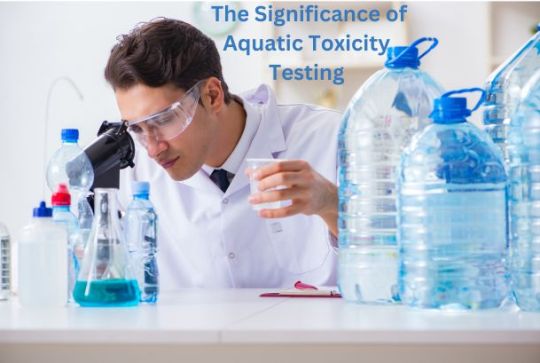
Aquatic toxicity testing is a critical component of environmental assessment, aiming to understand the impact of various substances on aquatic ecosystems. This method plays a pivotal role in safeguarding water quality, ensuring the health of aquatic organisms, and ultimately preserving biodiversity. In India, the focus on aquatic toxicity testing has gained prominence, with Preclinical Contract Research Organizations (CROs) leading the way in conducting comprehensive assessments.
Understanding Aquatic Toxicity Testing:
Aquatic toxicity testing involves evaluating the adverse effects of chemicals, pharmaceuticals, and other substances on aquatic organisms such as fish, algae, and crustaceans. The goal is to identify potential hazards, set regulatory standards, and contribute to environmental conservation.
Importance of Aquatic Toxicity Testing:
Environmental Preservation:
Aquatic ecosystems are vulnerable to pollution, industrial discharges, and emerging contaminants. By conducting aquatic toxicity testing, we can identify potential threats to water bodies and take preventive measures to preserve these ecosystems.
Regulatory Compliance:
Governments worldwide are increasingly stringent about environmental regulations. Aquatic toxicity testing ensures that industries adhere to these standards, promoting responsible and sustainable practices.
Biodiversity Conservation:
Aquatic organisms are crucial for maintaining biodiversity. Testing helps in understanding how different chemicals may impact these organisms, allowing for informed decision-making to protect diverse aquatic life.
Human Health Protection:
Contaminated water sources can pose risks to human health through the consumption of contaminated seafood or water. Aquatic toxicity testing indirectly contributes to safeguarding public health by ensuring water quality.
Preclinical CROs in India:
India has emerged as a hub for Preclinical CROs, offering a wide range of services, including aquatic toxicity testing. These organizations play a vital role in supporting industries by providing accurate and reliable data on the environmental impact of their products.
Expertise and Infrastructure:
Preclinical CROs in India boast state-of-the-art laboratories and a pool of experienced scientists specialized in aquatic toxicity testing. This expertise ensures the generation of high-quality data for clients.
Regulatory Compliance Services:
These CROs navigate the complex landscape of environmental regulations, helping businesses comply with national and international standards. This is crucial for industries looking to expand while maintaining environmental responsibility.
Cost-Effective Solutions:
India's Preclinical CROs offer cost-effective solutions without compromising on quality. This makes them attractive partners for global industries seeking efficient and economical aquatic toxicity testing services.
0 notes
Text
Advancing Ecotoxicology Studies: Collaboration with Clinical Research Organizations in India
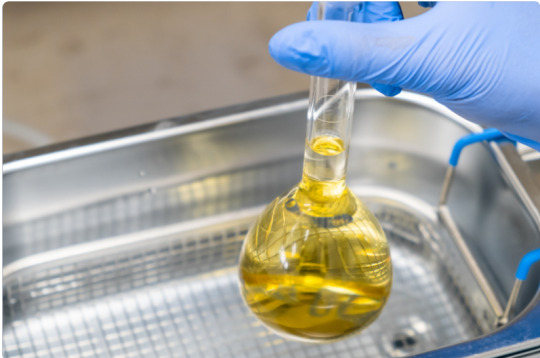
Introduction
Ecotoxicology studies have gained significant traction in recent years, driven by mounting concerns regarding the adverse effects of pollutants on the environment and human health. In response to the challenges posed by industrialization and urbanization, ecotoxicology has emerged as a pivotal field of research. In India, the growth of this field has been complemented by the active involvement of Clinical Research Organizations (CROs) in conducting ecotoxicology studies.
Understanding Ecotoxicology
Ecotoxicology, a scientific discipline, delves into the detrimental impacts of environmental contaminants on ecosystems, encompassing plants, animals, and humans. Its overarching objective is to unravel how pollutants, such as chemicals and heavy metals, influence living organisms and their natural habitats. The insights gleaned from ecotoxicology studies hold immense significance, serving as the bedrock for shaping environmental policies and devising strategies to counteract pollution.
CROs in India: A Catalyst for Ecotoxicology Research
Clinical Research Organizations in India have astutely recognized the demand for comprehensive ecotoxicology research. Renowned for their prowess in executing clinical trials, these organizations have expanded their horizons to address environmental concerns. They offer a multidisciplinary approach, amalgamating toxicology, chemistry, biology, and environmental science to gauge the potential hazards posed by pollutants.
Access to Advanced Resources
The distinctive advantage of CROs in India lies in their access to cutting-edge facilities and a cadre of proficient researchers. Leveraging state-of-the-art technologies and methodologies, they scrutinize the impacts of contaminants on a diverse range of organisms, spanning from microorganisms to vertebrates. This meticulous approach ensures that ecotoxicology studies are conducted with the utmost precision and credibility.
Collaborative Initiatives for Environmental Protection
Moreover, Clinical Research Organizations actively engage in collaborations with governmental bodies, industries, and environmental advocacy groups to conduct ecotoxicology studies. These studies play a pivotal role in identifying pollutants of grave concern, assessing their long-term ramifications, and formulating strategies for pollution control and amelioration.
Conclusion
In summation, ecotoxicology studies have assumed an indispensable role in safeguarding both the environment and human health. Clinical Research Organizations in India have assumed a leading role in this endeavor, capitalizing on their proficiencies to carry out rigorous research. Their partnerships with stakeholders guarantee that ecotoxicology findings translate into tangible actions, positioning them as instrumental entities in the realm of environmental science. As ecotoxicology continues to advance, the collaboration between CROs and the scientific community in India will be vital in tackling the intricate challenges stemming from environmental pollution.
0 notes
Text
Key Factors to Consider When Choosing a Clinical Research Company for Analytical Laboratory Services

In the world of pharmaceuticals, biotechnology, and medical devices, clinical research plays a pivotal role in bringing innovative treatments and therapies to market. Central to this process is the selection of a clinical research company that can provide comprehensive analytical laboratory services. This critical decision can significantly impact the success and efficiency of your research endeavors. In this article, we will delve into the key factors to consider when choosing a clinical research company for analytical laboratory services.
1. Expertise and Reputation
When evaluating clinical research companies, it's crucial to assess their expertise and reputation in the field. Look for companies with a proven track record of conducting successful clinical trials and providing high-quality analytical laboratory services. Consider factors such as the number of years they've been in operation, the types of projects they've worked on, and any industry awards or certifications they hold.
2. Regulatory Compliance
Compliance with regulatory standards is paramount in clinical research. Ensure that the company you choose adheres to the relevant regulatory guidelines, such as Good Laboratory Practices (GLP) and Good Clinical Practices (GCP). A company that consistently complies with these standards will help you avoid regulatory hurdles and ensure the integrity of your research data.
3. State-of-the-Art Facilities and Equipment
The quality of analytical laboratory services depends on the facilities and equipment available. Verify that the clinical research company possesses state-of-the-art laboratories equipped with cutting-edge instrumentation. Well-maintained and up-to-date equipment ensures accurate and reliable results in your research.
4. Specialization and Therapeutic Expertise
Different clinical research companies may specialize in various therapeutic areas, such as oncology, cardiology, or infectious diseases. Choose a company that aligns with your specific research needs. Their experience in your therapeutic area can bring valuable insights and efficiency to your project.
5. Capacity and Scalability
Consider the capacity and scalability of the clinical research company. Can they handle the volume of work required for your project? Scalability is essential, especially if your research project may expand in scope or require additional resources in the future. Ensure the company can adapt to your evolving needs.
6. Data Management and Reporting
Efficient data management and reporting are critical components of clinical research. Evaluate the company's data management systems and reporting capabilities. Clear and concise reporting can facilitate decision-making and regulatory submissions.
7. Geographic Location
Geographic location can impact logistical considerations, such as sample transportation and communication. Consider the location of the clinical research company in relation to your research sites and partners. Proximity can simplify collaboration and reduce potential delays.
8. Cost and Budget Alignment
While cost should not be the sole determining factor, it is essential to align your budget with the services offered by the clinical research company. Request detailed cost estimates and evaluate them in the context of the services, expertise, and quality provided. Balance cost considerations with the value and reliability of the services.
9. References and Client Feedback
Don't hesitate to request references from past clients or seek out client feedback and testimonials. Hearing about the experiences of others who have worked with the clinical research company can provide valuable insights into their strengths and weaknesses.
Conclusion
Choosing the right clinical research company for analytical laboratory services is a critical decision that can significantly impact the success of your research endeavors. By considering factors such as expertise, regulatory compliance, facilities, specialization, capacity, data management, location, cost, and references, you can make an informed choice that aligns with your research goals and ensures the highest quality outcomes. Take the time to thoroughly assess your options, as this decision is a crucial step toward advancing medical knowledge and improving patient care.
0 notes
Text
0 notes
Text
0 notes